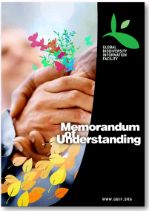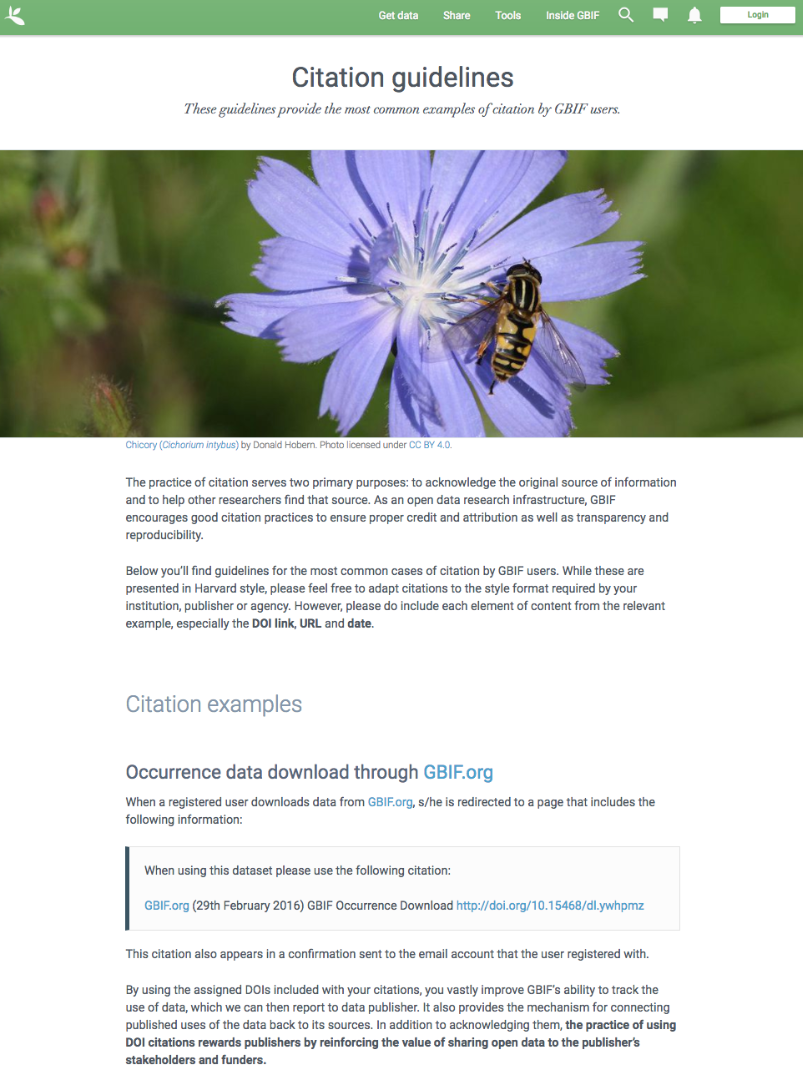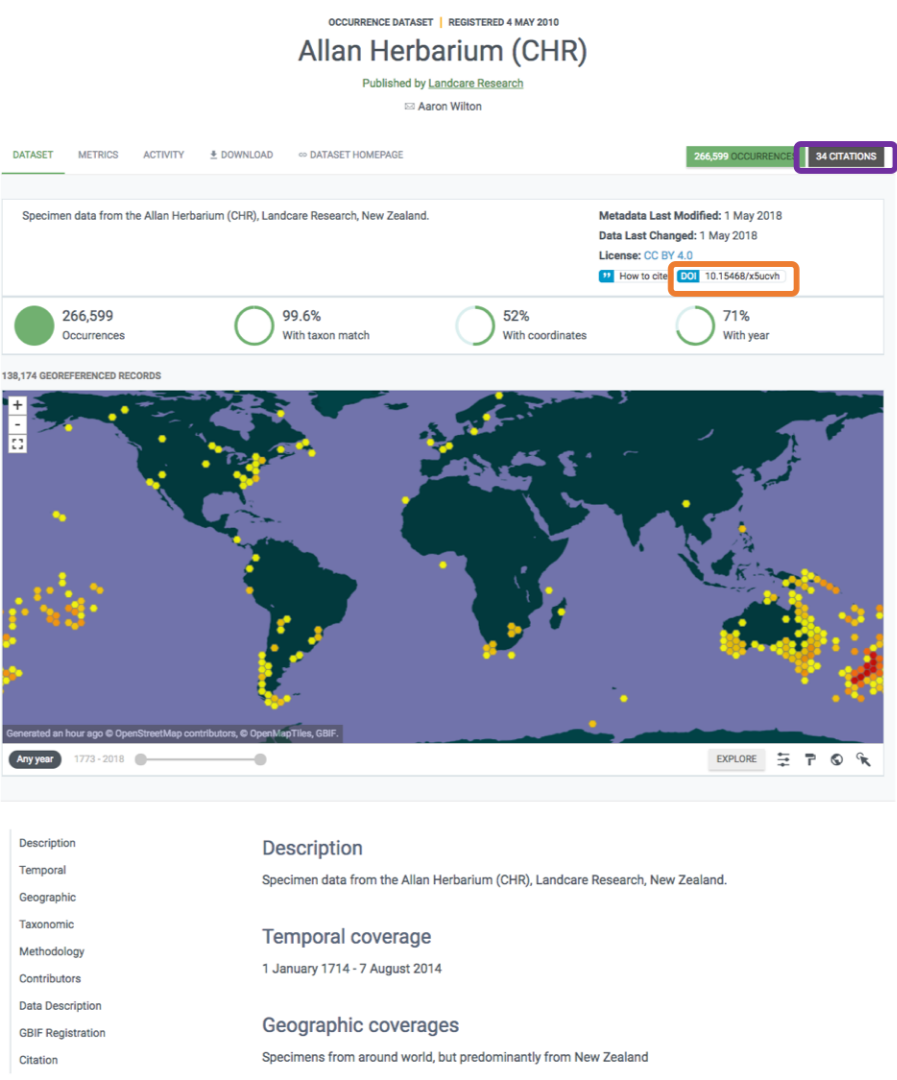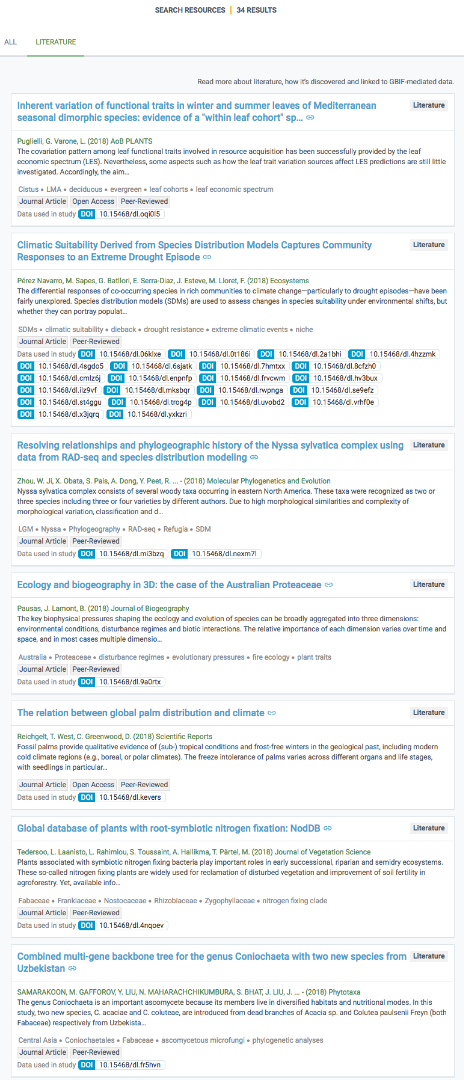Data publisher visibility and recognition
| In this section, you will review frameworks for citing and tracking digital data use on GBIF.org |
Giving adequate visibility and recognition to data publishers is of paramount importance to GBIF. That is why the organization has put in place the regulatory and technical frameworks needed to make citing and tracking digital data use, easier than ever before.
The GBIF Memorandum of Understanding
GBIF is a multilateral initiative established by intergovernmental agreement and based on a non-binding Memorandum of Understanding (MoU). The MoU is the official document that countries and international organizations sign in order to join GBIF.

The MoU is very clear stating that GBIF data publishers need to be acknowledged for their contributions:
"4. Attribution. + GBIF seeks to ensure that the publisher/holder of data is acknowledged and requests that such attribution be maintained in any subsequent use of the data."
GBIF strives to make all efforts possible to make this statement a reality.
The GBIF Data User Agreement
Prior to accessing any data using GBIF, users need to accept a data user agreement which includes very specific requirements on citation of the origin of the data accessed through GBIF. These are some of the requirements listed in the agreement:
"In order to make attribution of use for owners of the data possible, the identifier of ownership of data must be retained with every data record shared onward for reuse."
“Users must publicly acknowledge, following the scientific convention of citing sources in conjunction with the use of the data, the Data Publishers whose biodiversity data they have used, where appropriate through use of a Digital Object Identifier (DOI) applying to the dataset (s) and/or data downloads.”
Similarly, the agreement is very specific in stating that the conditions stated in the licenses selected by the data published must be respected.
"Users must comply with the terms and conditions included in the licence selected by each Data Publisher, and the licensing information included with each data download. If any provision of this Use Agreement conflicts with the terms and conditions within the licences selected by the Data Publisher, licences selected by the Data Publisher shall prevail."
Citation
GBIF strongly encourages all users to cite data retrieved from the GBIF network. For that purpose it provides recommended citation strings on the dataset, occurrence and download pages in GBIF.org.
This is especially relevant for datasets published using the “CC-BY” and “CC-BY-NC” licenses, which include specific requirements for citing the origin of the data.
Citation and right strings are automatically generated for data publishers for each dataset when using IPT as the publishing mechanism, providing that one of the standard licenses is selected.

Data publishers must carefully select which license aligns best with any existing requirement from their institutions and from any data access policy to which they may be subject.
Data publisher page
All publishers feature their own page on GBIF.org. It is important that publishers give some thought to how they want to appear on the website and provide relevant information about their institutions and their teams at the time of registration. They should also strive to keep it up to date, as interested parties will use the contact data on that page to contact the team responsible for the data publishing.
Dataset DOI
Every time a new version of a dataset is published using an IPT, a DOI (Digital Object Identifier) is assigned. As in the case of the downloads, this identifier allows easy citation and tracking of work derived from the dataset, if the user follows good practices for source citation.
As mentioned before, you can resolve DOIs into websites like doi.org/10.xxx which will always redirect to the original source, in this case, the dataset page. You can also search for DOI using a normal web search, which will normally reveal any other resource citing use of the same DOI such as articles or public reports.

